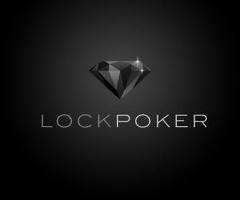Lock Poker CEO’s G911 Interview is Nothing but Spin (Part 2)
 Earlier this week, Gambling911 editor Chris Costigan published a two-part “interview” with Lock Poker CEO Jennifer Larson in which Larson attempted to explain away the crisis of confidence that has engulfed the site. On Thursday, Flushdraw debunked Part 1 of the interview.
Earlier this week, Gambling911 editor Chris Costigan published a two-part “interview” with Lock Poker CEO Jennifer Larson in which Larson attempted to explain away the crisis of confidence that has engulfed the site. On Thursday, Flushdraw debunked Part 1 of the interview.
In Part 2, Costigan led with a question about the reasons behind the departures of Lock Pros Chris Moorman and Paul Volpe. Larson responded that the split with the two players was “just a timing issue and the spin doctors ran with it.”
That answer breezes right past the Twitter statements that each man made as part of the announcement that he’d left Lock (announcements which were unusual just for their very existence — poker players don’t usually announce when they end sponsorships.) Moorman and Volpe both acknowledged that Lock’s financial, communication and cashout struggles contributed to their decisions to leave.
“I sincerely hope Lock is able to overcome its current problems and for the sake of online poker their situation is resolved,” wrote Moorman.
“Hope poker becomes legal and they can resolve all the issues that there [sic] having,” said Volpe.
Costigan, unfortunately, did not put any follow-up question to Larson on this point, instead letting her “spin doctoring” comment cover the issue.
It must also be spin doctoring when players complain that they can’t get straight answers out of Lock despite multiple and repeated emails. Larson told Costigan that, “Over the last 10 months we have moved our average email response from 48 hours to 15 minutes.”
Larson’s statement isn’t independently verifiable, but player complaints on poker forums suggest that, at best, the 15-minute response claim is laughable. At the start of the recent cashout controversy which sparked the latest crisis at Lock, players who were told by Lock PR man Shane Bridges to “email security” reported emailing the Lock security team every day for a week without getting any response.
The one straightforward answer that Larson offered Costigan was that, “Lock has never done any banking in Cyprus, so the recent events there had no impact whatsoever on our operations.” She also spent a fair amount of time talking about how Lock “takes care of our players” with generous deposit bonuses and refusing to entirely prohibit P2P transfers.
Costigan again let her off the hook, however, by failing to follow up with pointed questions about Lock’s failure to cash players out in a timely fashion or for sums greater than $10,000. It’s hard to imagine how Lock can claim to “put our players first”, as Larson does, when those same players can’t cash out their winnings without considerable difficulties and when Lock communicates so poorly with them (when the site bothers to communicate with them at all).
Costigan’s final question weirdly attempted to throw dirt at Full Tilt and Pokerstars by pointing out that Full Tilt’s U.S. players still haven’t been paid out their account balances. Larson’s response set Larson up as some sort of martyr. She told Costigan, “because of my direct involvement and hands-on approach, people have somewhere to direct their irrational hatred.”
That comment misses the point entirely. The anger of Lock players has nothing to do with personal hatred of Jennifer Larson and everything to do with the frustration of players not being able to get their money off of Lock in a timely manner, unlike any other poker site in the market.
Larson took a swipe at the poker media as well. “It is clear that… ‘news’ sites are just focused on the fear they can incite,” she said. “Instead of respecting the industry that supports them, they are driving it into a fearful frenzy.”
“With the level of propaganda and media manipulation that has been mindlessly regurgitated, I decided to speak up.”
Larson seems to belabor under two misapprehensions: that the poker media is supported by the poker sites and thus owe some sort of editorial fealty to the sites, and that the community won’t fill informational vacuums. It is bad corporate PR strategy not to tackle issues directly and to, at least, control the message that gets put out. When companies fail to do that, their customers are left to envision the worst.
What’s more, it may have been true three years ago that the poker sites “supported” the poker media, but that has become less and less true since Black Friday changed the poker landscape. Independent sites have emerged. With that independence comes the ability to tell the poker community when the emperor isn’t wearing any clothes.
It’s not the poker media’s fault that Larson doesn’t want her company’s nakedness to be revealed to the world.




















COMMENTS